20 Iconic Movie Moments That Wouldn’t Be Allowed Today
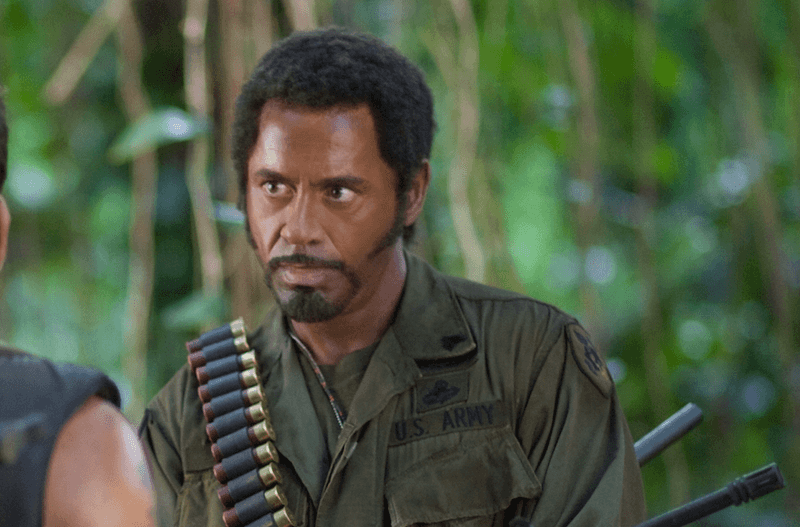
Movies have always reflected the times they were made in — for better or worse. What once passed as funny, romantic, or daring often makes modern audiences cringe (or yell at their screens). As society grows more aware of issues like consent, diversity, and representation, some classic scenes now feel wildly out of touch.
1. The Breakfast Club (1985) – Bender’s harassment of Claire in the closet scene
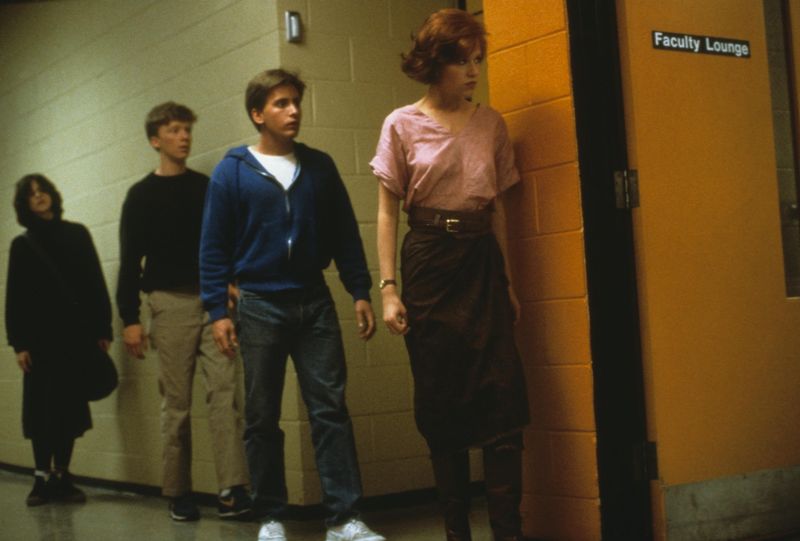
Back in the ’80s, high school rebellion was cool — but harassment wasn’t supposed to be part of the charm. In The Breakfast Club, John Bender’s aggressive flirting with Claire, including the infamous closet scene, now reads as uncomfortable rather than edgy.
At the time, audiences brushed it off as typical teen banter. But watching it today, it’s hard to ignore how intimidating and invasive his behavior feels. It’s less “bad boy charm” and more “HR violation waiting to happen.”
Despite that, the film still resonates for its exploration of teen stereotypes and vulnerability. If made today, Bender’s character would likely go through therapy instead of detention — and Claire would have a say in how far the flirtation went.
2. Sixteen Candles (1984) – The “drunk girlfriend” scene played for laughs
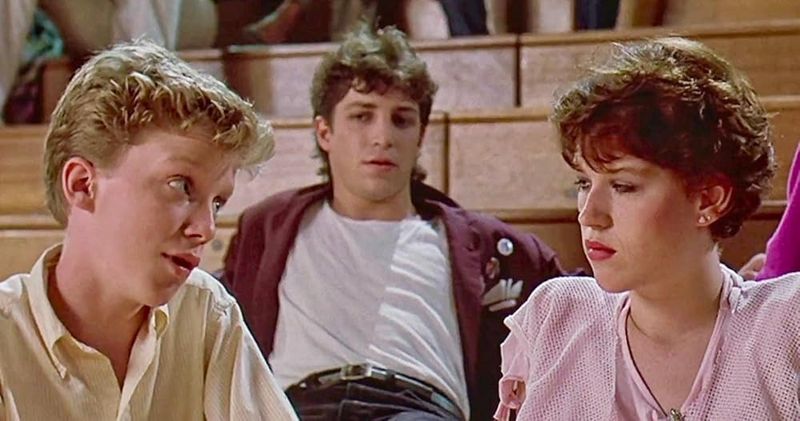
What was once considered a quirky coming-of-age story now raises serious questions about consent. The scene where Jake gives his passed-out girlfriend to another guy “as a joke” is shocking by modern standards.
Back then, audiences laughed it off as harmless teen mischief, completely missing the dark undertones. Today, that moment would trigger outrage — and probably a few lawsuits. It highlights how often ’80s comedies blurred the line between humor and harm.
Despite its nostalgic glow, Sixteen Candles reminds us how far pop culture has come in recognizing that intoxication and consent never mix. If remade now, the script would focus on empowerment, not exploitation.
3. Gone with the Wind (1939) – The romanticized portrayal of slavery and the Confederacy
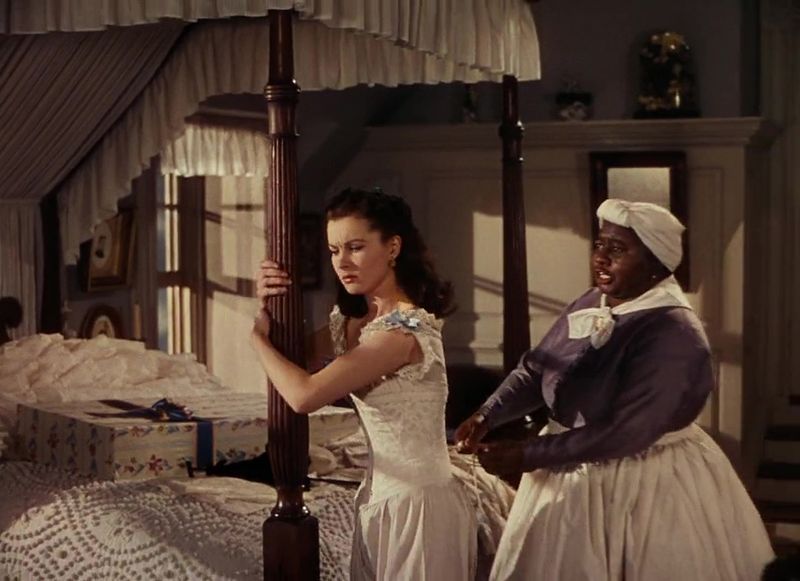
Often hailed as one of the greatest films ever made, Gone with the Wind also glamorizes a deeply painful chapter in American history. Its romanticized view of the antebellum South and portrayal of enslaved people is impossible to ignore today.
When it premiered, audiences swooned over Scarlett O’Hara’s drama and Rhett Butler’s swagger. But modern viewers can’t unsee the glorification of plantation life or the racial stereotypes baked into the story.
Hollywood has since tried to contextualize the film’s legacy — some platforms even add disclaimers before streaming it. It’s a reminder that cinematic beauty can coexist with moral blindness, and that nostalgia should never erase truth.
4. Revenge of the Nerds (1984) – The “mask” seduction scene that implies sexual assault
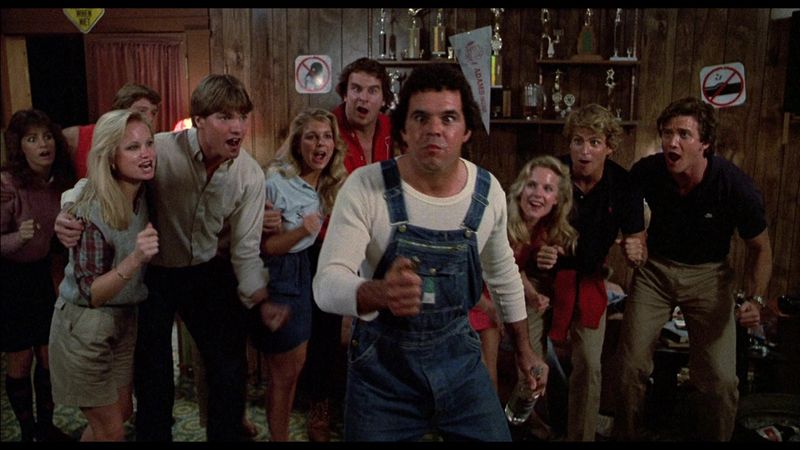
For a film that celebrates underdogs, Revenge of the Nerds crosses a line that modern audiences can’t ignore. The so-called “romantic” scene where a male character disguises himself to have sex with a woman under false pretenses? That’s assault, not comedy.
At the time, it was meant to show the nerd “getting the girl” after years of being bullied. Today, it’s a chilling example of how media once normalized deceit and non-consensual encounters.
Despite its legacy as a cult classic, the film’s reputation has taken a hit as viewers reevaluate what humor should look like. Revenge may be sweet — but consent is sweeter.
5. Ace Ventura: Pet Detective (1994) – The transphobic reveal of the villain

Jim Carrey’s slapstick brilliance made Ace Ventura a ’90s sensation, but the movie’s big twist — the villain being a trans woman — hasn’t aged well. The reveal is played for laughs, complete with exaggerated disgust from other characters.
In the ’90s, it was considered edgy humor. Today, it’s widely viewed as cruel and demeaning, especially in how it treats gender identity as a punchline. It’s a clear case of comedy punching down instead of up.
Modern comedies have learned (mostly) to evolve, using humor to expose bias rather than reinforce it. If Ace Ventura debuted now, its message would be reworked — and that infamous “reveal” scene would go straight to the cutting room floor.
6. Grease (1978) – “Did she put up a fight?” lyric in “Summer Nights”
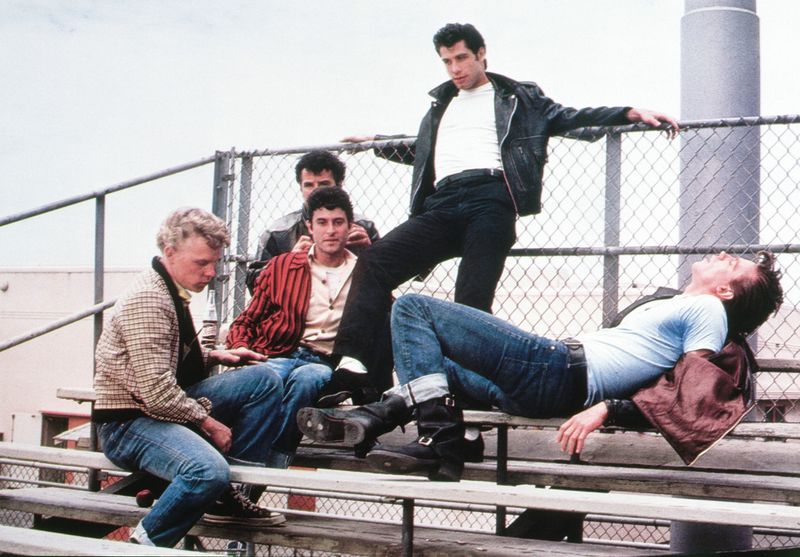
Fans love Grease for its catchy songs and slick style, but “Summer Nights” has a line that sticks out like a sore thumb in 2025: “Did she put up a fight?” It’s supposed to be playful, but it trivializes consent.
When it first came out, few blinked at the lyric — it was part of a “boys bragging” moment. Today, it lands as uncomfortable and outdated, especially in a film that high schools still perform.
Despite that, the movie remains iconic. It’s a perfect example of how pop culture can evolve — you can still sing along, but with the awareness that not every lyric deserves a nostalgic pass.
7. Indiana Jones and the Temple of Doom (1984) – Stereotypical portrayal of Indian culture

Adventure movies don’t get more thrilling than Indiana Jones, but Temple of Doom is notorious for its cultural insensitivity. From the “monkey brains” dinner scene to caricatured depictions of Indian culture, it’s hard to watch without wincing.
Audiences in the ’80s saw it as exotic escapism; today, it’s a textbook example of how Hollywood once exoticized non-Western cultures. The film’s colonial undertones and “white savior” narrative feel especially jarring in hindsight.
Despite that, Indy remains an iconic hero — and his adventures continue to evolve with the times. Modern filmmakers would (hopefully) trade stereotypes for authenticity, and maybe leave the chilled monkey brains off the menu.
8. The Little Mermaid (1989) – Ariel giving up her voice for a man
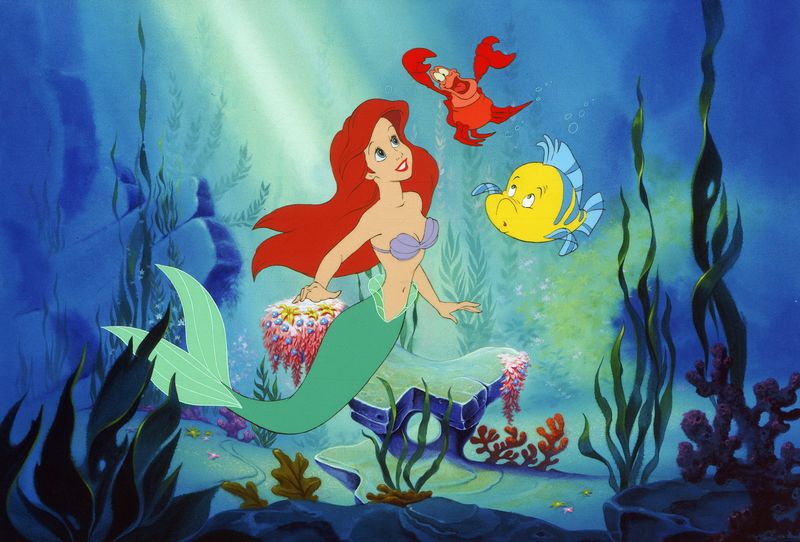
Generations grew up adoring Ariel, but the message at the heart of The Little Mermaid feels questionable today. A young woman literally gives up her voice — her identity — to chase a man she’s never spoken to.
When it first premiered, it was viewed as a dreamy love story. Now, it reads more like a cautionary tale about sacrificing too much for romance. “Change everything about yourself to be loved” isn’t exactly feminist gold.
The recent live-action remake added more depth and agency to Ariel’s character, reflecting how storytelling has matured. Love is still magical, but in 2025, keeping your voice is non-negotiable.
9. Animal House (1978) – The voyeuristic scenes involving underage girls
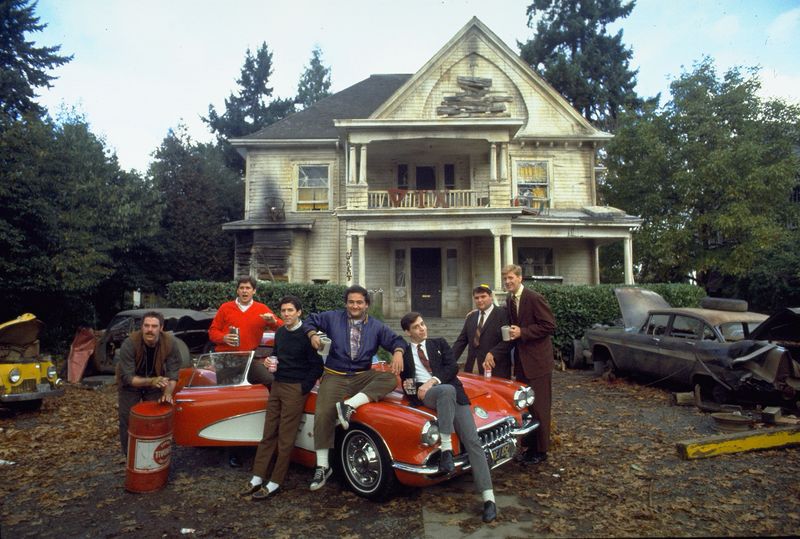
College comedies owe everything to Animal House, but let’s be honest — some scenes are downright creepy. Between peeping tom antics and sexual situations involving underage girls, the film’s “boys will be boys” attitude hasn’t aged gracefully.
What once felt like rebellious humor now feels like a manual for misconduct. The movie’s success set a tone that encouraged boundary-pushing comedy — sometimes at the expense of decency.
Today’s audiences still appreciate its chaotic spirit but recognize that freedom and respect can coexist. If made now, Animal House would need a massive moral makeover.
10. Pretty Woman (1990) – The glamorization of prostitution without addressing real-world implications
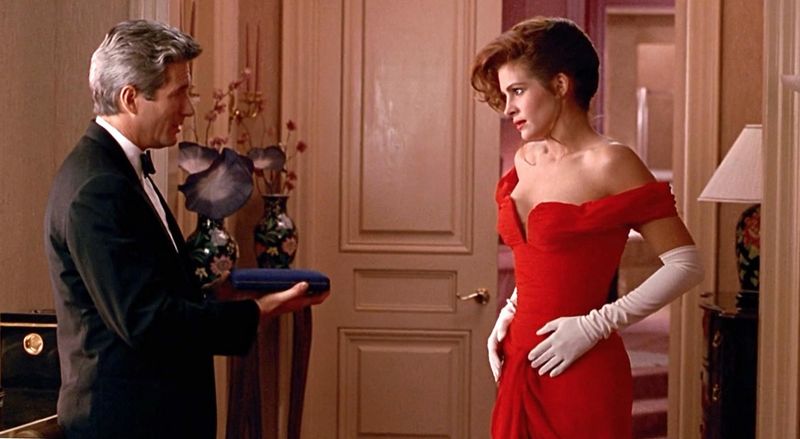
Julia Roberts’ charm made Pretty Woman irresistible, but let’s face it — the film turns prostitution into a Cinderella fantasy. The gritty realities of sex work are replaced with designer clothes and a fairytale ending.
Audiences in the ’90s loved its romantic wish fulfillment, but modern viewers see the imbalance of power and the missing conversation about safety or exploitation. It’s all gloss, no grit.
Still, the movie remains iconic for Roberts’ magnetic performance. If reimagined today, Vivian would own her choices, define her worth, and maybe rescue herself — no prince required.
11. Back to the Future (1985) – The “almost kiss” between Marty and his mother
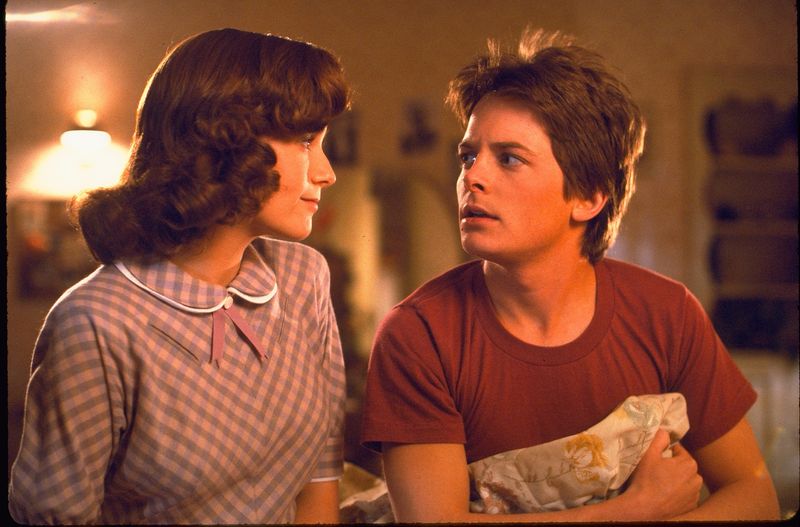
Everyone remembers Back to the Future for its time-traveling DeLorean, but the scene where Marty’s own mother falls for him? Yeah… that’s not something you could get away with today.
At the time, it was seen as a quirky twist — comedic irony that made audiences giggle. Now, it lands somewhere between awkward and downright unsettling. The “almost kiss” scene, played for laughs, gives off major ick energy to modern audiences.
Despite that, the film remains one of cinema’s most creative masterpieces. Its brilliance lies in its humor and heart — but the whole “mom crush” subplot would likely be rewritten (or skipped entirely) if the film debuted in 2025.
12. Aladdin (1992, original lyrics) – The “barbaric, but hey, it’s home” line about Middle Eastern culture
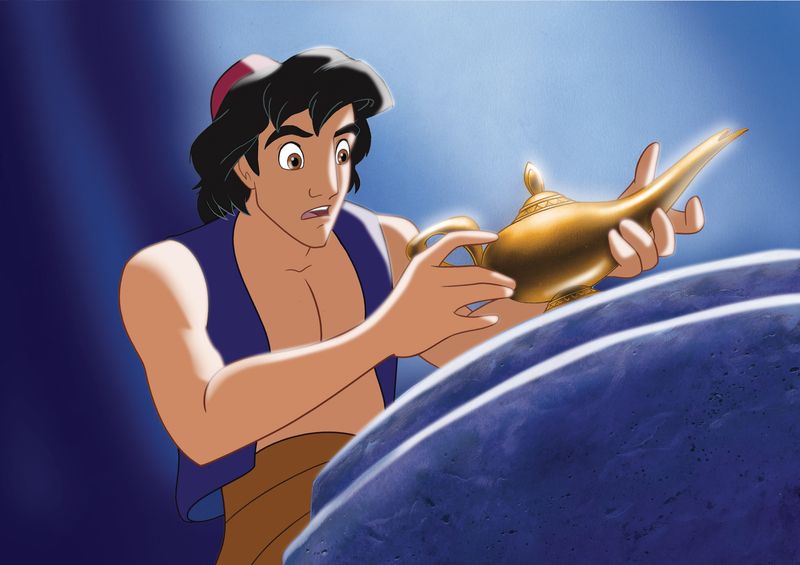
Before the live-action remake cleaned things up, the original Aladdin had some eyebrow-raising lyrics and stereotypes. The opening song’s line — “where they cut off your ear if they don’t like your face” — was later changed for obvious reasons.
At the time, Disney was trying to sound “exotic,” but it came off as tone-deaf and offensive to Middle Eastern culture. It reflected a broader pattern in Hollywood where entire regions were painted with one broad, inaccurate brush.
The modern remake, thankfully, corrected those missteps by celebrating Middle Eastern culture rather than distorting it. It’s proof that progress isn’t about erasing the past — it’s about learning how to tell stories more respectfully.
13. James Bond: Goldfinger (1964) – Bond’s forceful seduction of Pussy Galore
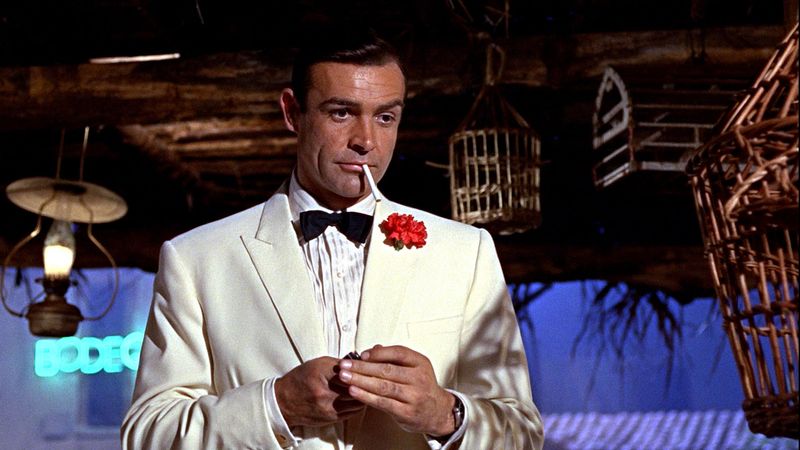
Sean Connery’s Bond is the definition of old-school charm — and old-school sexism. The infamous barn scene, where Bond “seduces” Pussy Galore after physically forcing a kiss, would never fly in a post-#MeToo world.
In the ’60s, it was framed as irresistible masculinity. Today, it reads as coercive and deeply uncomfortable. The notion that women just need to be “persuaded” into romance is one of those outdated tropes that we’ve thankfully outgrown.
Modern Bond films have worked hard to update the character — less objectification, more mutual respect. It turns out the world’s greatest spy doesn’t have to be a creep to be cool.
14. Miss Congeniality (2000) – Mocking contestants’ appearances for humor
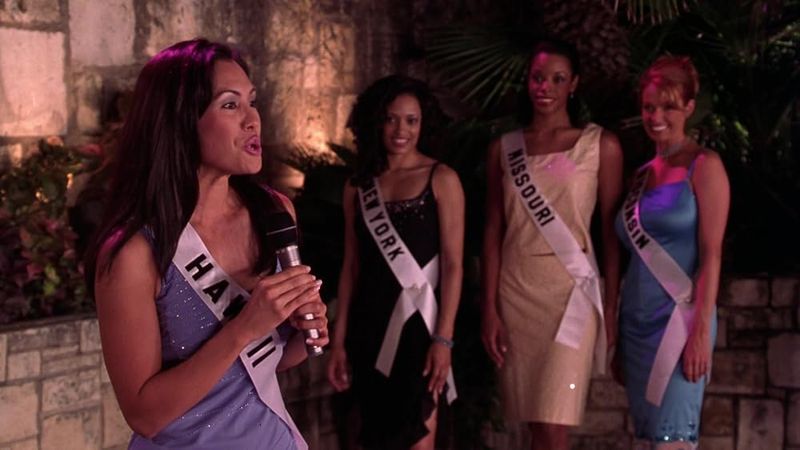
Sandra Bullock’s Miss Congeniality is still a hilarious romp, but let’s be honest — a lot of its jokes about beauty contestants haven’t aged gracefully. The film pokes fun at women’s appearances in ways that would feel mean-spirited today.
At the time, it was considered lighthearted humor — a tomboy navigating a world of sequins and hairspray. But modern audiences are more aware of how humor that targets women’s bodies or choices can reinforce the very stereotypes it’s mocking.
Despite that, the movie’s heart — celebrating authenticity and friendship — still shines. If remade today, Miss Congeniality would trade body jokes for empowerment and still leave audiences smiling.
15. Tropic Thunder (2008) – Robert Downey Jr.’s blackface performance, even though satirical
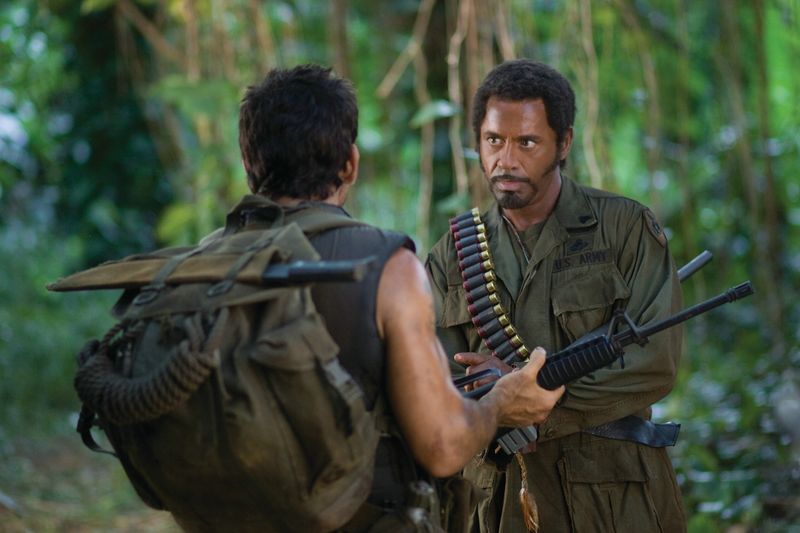
When Tropic Thunder hit theaters, it was meant as satire — mocking Hollywood’s excess and tone-deafness. But Robert Downey Jr.’s use of blackface, even as commentary, remains one of cinema’s most controversial choices.
At the time, many argued it was a critique of the industry itself. But satire doesn’t always land the way it’s intended, and even with context, it’s impossible to separate the discomfort from the message.
Today, it’s a reminder that even clever parody has limits. Audiences are more sensitive to representation — not because they’re “too woke,” but because we’ve learned that some lines aren’t meant to be crossed for laughs.
16. The Hangover (2009) – Jokes about roofies and gender identity
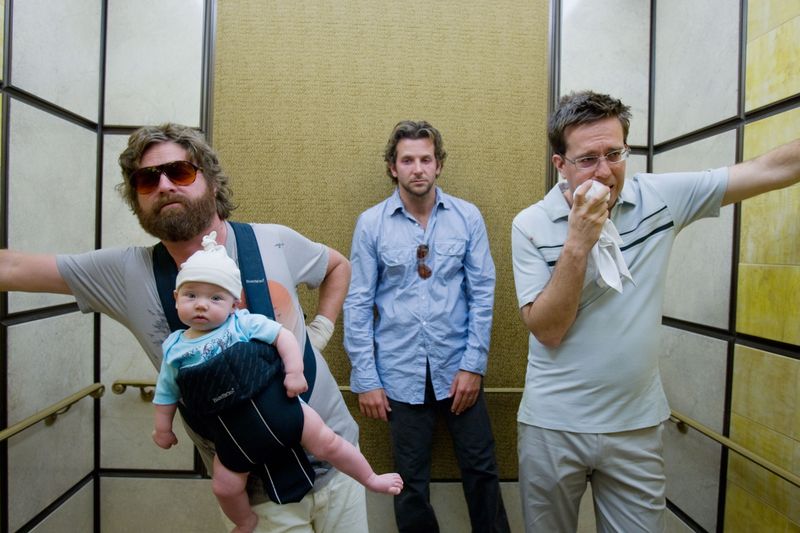
Few comedies hit harder than The Hangover, but beneath the chaos and tiger jokes lies humor that hasn’t aged well. Casual jokes about roofies and gender identity? Definitely not something that would pass today.
When it first premiered, people praised it for its outrageous, anything-goes energy. But as conversations about consent and respect evolved, parts of the film started feeling less like humor and more like red flags.
Even so, it remains a comedy classic — one that defined a generation of “bachelor gone wild” stories. A modern remake would still be wild, but with boundaries that don’t cross into harm.
17. The Goonies (1985) – Racial stereotypes and casual ableism
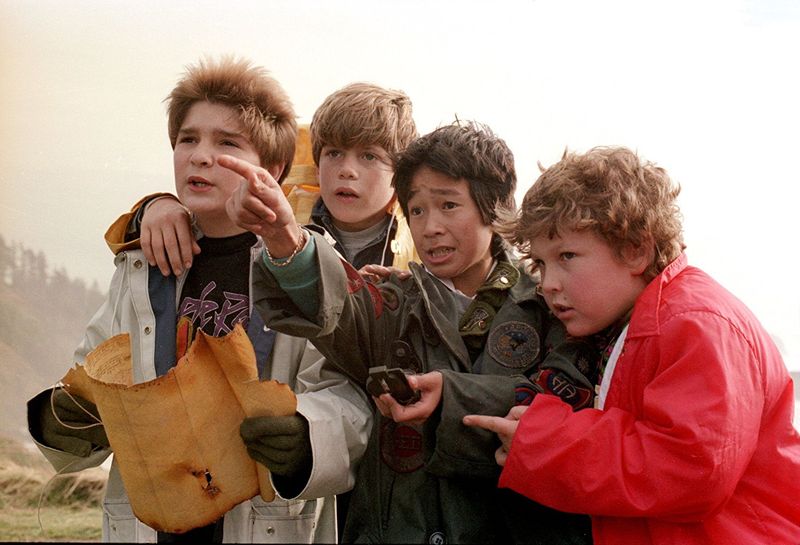
For many, The Goonies is childhood magic bottled on screen — but it’s not without its flaws. The film includes racial stereotypes and ableist humor that feel jarring in a story meant for kids.
Back in the day, audiences barely noticed. It was adventure and laughs, not social commentary. But in today’s world, viewers recognize how language and portrayals can leave lasting marks, even when unintended.
That doesn’t mean the film loses its place in history. It just reminds us that nostalgia and awareness can coexist — we can still love the adventure, while acknowledging what we’ve learned since.
18. Dumb and Dumber (1994) – The “fantasy” scene of chasing women with zero consent awareness
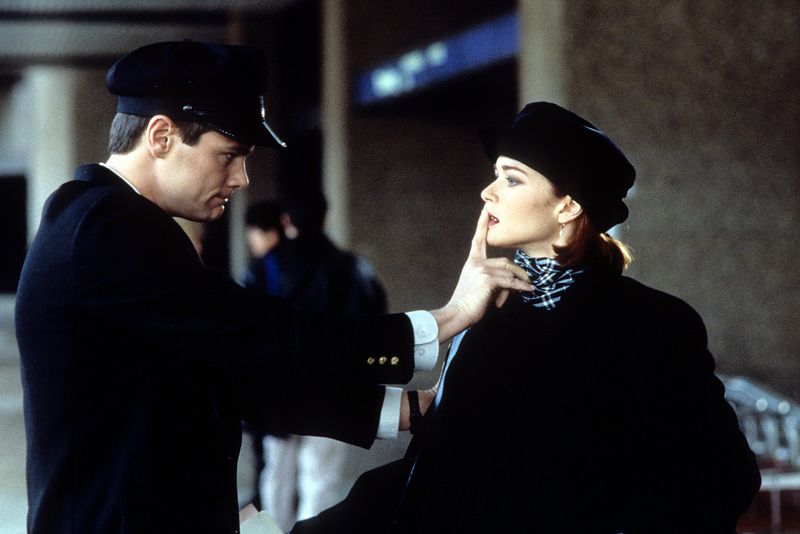
Jim Carrey and Jeff Daniels made Dumb and Dumber a comedy classic, but some moments cross the line from silly to inappropriate — especially the fantasy sequence where women are treated as prizes and props.
Audiences once saw it as harmless idiocy. Now, it highlights how many comedies of that era leaned on misogyny for laughs. The film’s humor still works when it’s self-deprecating, not when it mocks others.
Despite its flaws, it’s impossible not to laugh at its absurdity. If reimagined today, the dumb duo would still cause chaos — just without the cringey gender politics.
19. Mean Girls (2004) – Fat-shaming and homophobic jokes
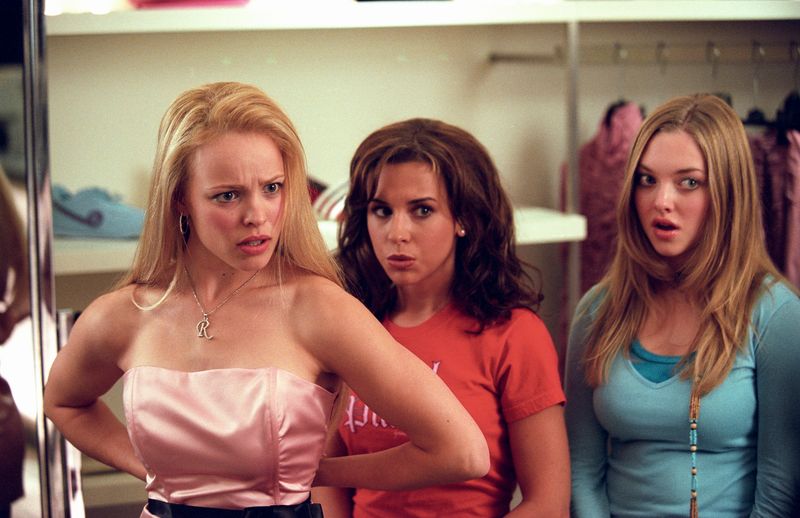
It’s still fetch — but not every joke in Mean Girls holds up. Between fat-shaming and casual homophobia, some of its iconic one-liners sound a little rough by today’s standards.
When it premiered, those jokes were part of teen comedy culture — biting, snarky, and exaggerated. Now, with better awareness of mental health and body image, humor like that feels less clever and more cruel.
Still, Mean Girls remains timeless because of its message about empathy and self-awareness. Its legacy proves that sharp comedy doesn’t need to punch down to stay funny.
20. White Chicks (2004) – Racial caricature humor that wouldn’t pass modern standards
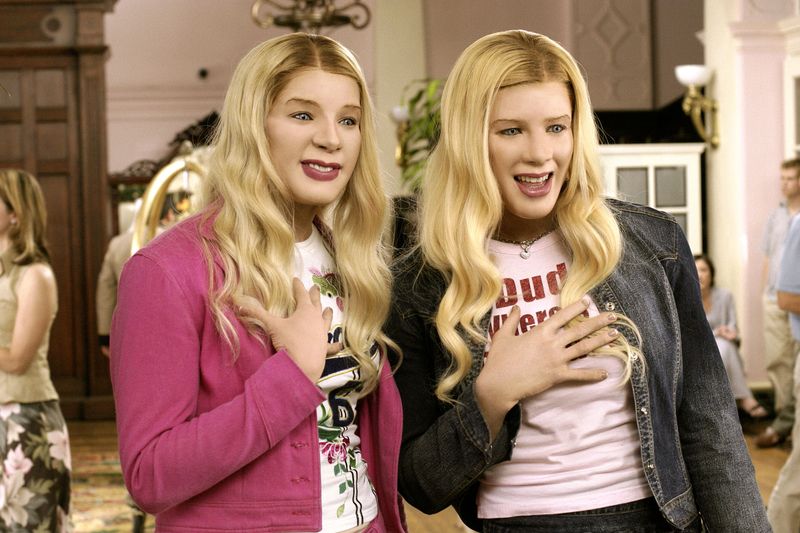
Back in the early 2000s, White Chicks was the definition of outrageous comedy. Two Black FBI agents disguising themselves as wealthy white women was seen as hilarious — and edgy.
Today, the racial and gender caricatures that made it famous would face massive backlash. It’s a reminder that parody walks a fine line between imitation and mockery, and this one often tipped into the latter.
Even so, its quotable moments and over-the-top energy made it unforgettable. If remade now, it could keep the humor — but shift the focus toward clever social commentary instead of costume-driven stereotypes.

Comments
Loading…